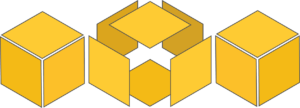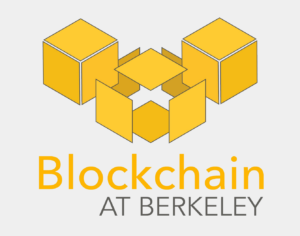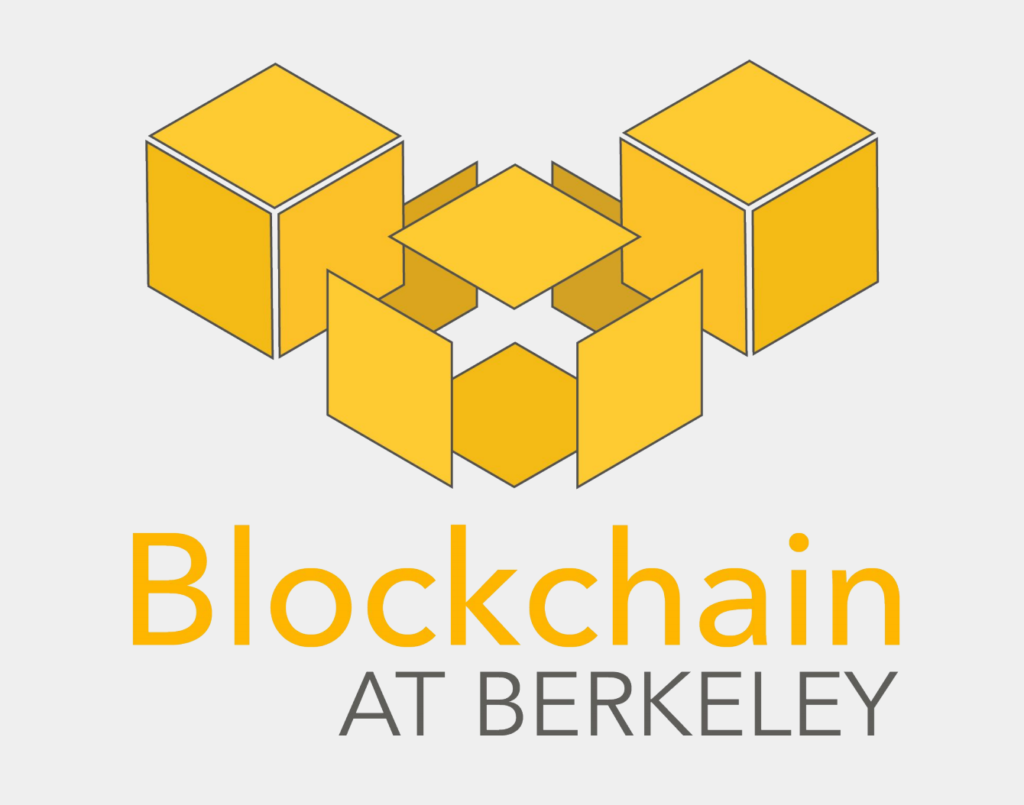There is a new consultancy aiming to take the Berkeley campus by storm. Blockchain at Berkley (B@B) is the world’s first university-based blockchain consultancy, and their founders are ready to hit the market with solutions that are increasingly being demanded by both small players and some of the biggest conglomerates.
We had the chance to speak with Tobias Disse, one of the main drivers behind the idea, who is now serving as President of Blockchain at Berkeley.
CRV: What was the idea behind creating Blockchain at Berkeley?
TD: I can came here in August and was at first very much interested in Bitcoin. That led me to attend one of the meetings of the Bitcoin Association of Berkeley meetings, where I got to know its President, Max Fang. It was in that meeting that the dominant topic of conversation was actually blockchain, the underlying technology in which Bitcoin is based, instead of Bitcoin itself.
That is what sparked my interest in maybe setting up a separate organization, but after much though, we decided we wanted to take advantage of the skill set of the experts and students attending Berkeley by making the consultancy a university-based entity, while at the same time servicing the rapidly increasing need from companies such as the most prominent banks that are constantly searching for professionals with skills related to blockchain technologies. Max and the Bitcoin Association of Berkeley were crucial in making these decisions and determining these milestones. Now that we are fully consolidated, one of our own principles is to educate people about the technology and its platforms. We know it is going to be a world-changing technology for banks, the government and public sector, and even a tool to revolutionize our healthcare system.
You are mentioning finance as one of the main spaces that can be disrupted by this technology. What does blockchain have that the current processes in this industry lack?
TD: One of the main advantages is making financial intermediaries almost completely redundant. It has great potential not only for big banks, but also for micropayment systems which can really add value to the current wave of innovations which we refer to as the Internet of Things.We have to keep in mind that there are a lot of transactions that are currently not taking place because the transaction fees are higher than the amount that wants to be transferred itself. If we reduce the barriers and fees for these transactions utilizing blockchain, then there will be great potential in generating a greater number of these financial movements. Seeing the great potential that this technology can have, we are very much looking forward to helping companies to find ways in which they can implement it to improve their own processes.
We have seen that one of the most popular applications of blockchain is to cryptocurrencies, specifically Bitcoin. Is the consultancy also going to be primarily concerned about Bitcoin or what would be its main focus?
TD: It will be focused on way more than just Bitcoin. Even though Bitcoin is one of the platforms that is currently receiving the most attention, there are other platforms that are competing to become the most dominant one in which companies will decide to transact. I believe that some of these other platforms are even more flexible and powerful in their application to different processes and scenarios than Bitcoin. For example, there is another platform that is currently gaining significant traction is Ethereum, which has a much richer programming language when compared to Bitcoin, and that can even allow firms you to program contracts.
It is important to note, however, that as a consultancy, we will aim to focus primarily on the technologies and platform that the market demands the most.
For the interested in the space that do not have the quantitative abilities how can contribute and get involved? and the ones who do have the skills?
TD: B@B will be hosting workshops for both individuals who already have programming skills and those that are at the very basic level of understanding of the technology. We intend this meetings and events with industry experts to be the initial point of involvement and interaction between the Berkeley community and B@B. The individuals who gain more interest in our work and develop enough knowledge and interest on the topic can then apply to be part of B@B’s Consultancy which will be composed of a Lead Consultant, a Lead Developer, and two or three developers (depending on the specific project) who will actually be working with a specific company to help it implement blockchain solutions into their day-to-day processes.
From the perspective of current students, what is the opportunity and benefit of getting involved into the space? What is the advantage of knowing about blockchain for someone at Berkeley once that person graduates?
TD: We are already seeing that there are great benefits for a candidate that has a resume that includes even 6 months of experience with blockchain technology. If you are able to help companies with us through consulting projects, you will build a skill set that will make you far more valuable to firms once you leave the university, primarily if you are interested in working for a financial institution. Knowing about blockchain will not only increase your opportunity to have a bigger impact on the organization you will be working for, but if you market yourself as a blockchain developer, it will also make you eligible for a market rate salary as high as $250,000. Another thing that we are really excited about is that the space is allowing both blockchain developers and business-minded professionals to get involved and participate, since the technology doesn’t only need to be implemented, but there must also be someone who can build a bridge of understanding between the power of the technology and the decision-makers at the firms who are seeking to implement it.
What are the potential challenges for the technology?
TD: Regulation is definitely the main one. There is a high degree of uncertainty around the way in which authorities will decide to regulate the space (should they regulate it as currency? should they frame it as a product?). Until now we can see that regulations have mostly been based on processes regulation, but blockchain does not have a clear point to be regulated on; it is a completely decentralized system while banks, for example, have central processes and are managed by one organization.
If I am interested in getting involved with B@B, what are my next steps?
The application for Developers can be found at https://goo.gl/forms/lrdNo32bjIywokrA2, and the application for Business at http://tinyurl.com/blockchain-berkeley Please be aware of the timeline for our application and selection process!

There is a new consultancy aiming to take the Berkeley campus by storm. Blockchain at Berkley (B@B) is the world’s first university-based blockchain consultancy, and their founders are ready to hit the market with solutions that are increasingly being demanded by both small players and some of the biggest conglomerates.
We had the chance to speak with Tobias Disse, one of the main drivers behind the idea, who is now serving as President of Blockchain at Berkeley.
CRV: What was the idea behind creating Blockchain at Berkeley?
TD: I can came here in August and was at first very much interested in Bitcoin. That led me to attend one of the meetings of the Bitcoin Association of Berkeley meetings, where I got to know its President, Max Fang. It was in that meeting that the dominant topic of conversation was actually blockchain, the underlying technology in which Bitcoin is based, instead of Bitcoin itself.
That is what sparked my interest in maybe setting up a separate organization, but after much though, we decided we wanted to take advantage of the skill set of the experts and students attending Berkeley by making the consultancy a university-based entity, while at the same time servicing the rapidly increasing need from companies such as the most prominent banks that are constantly searching for professionals with skills related to blockchain technologies. Max and the Bitcoin Association of Berkeley were crucial in making these decisions and determining these milestones. Now that we are fully consolidated, one of our own principles is to educate people about the technology and its platforms. We know it is going to be a world-changing technology for banks, the government and public sector, and even a tool to revolutionize our healthcare system.
You are mentioning finance as one of the main spaces that can be disrupted by this technology. What does blockchain have that the current processes in this industry lack?
TD: One of the main advantages is making financial intermediaries almost completely redundant. It has great potential not only for big banks, but also for micropayment systems which can really add value to the current wave of innovations which we refer to as the Internet of Things.We have to keep in mind that there are a lot of transactions that are currently not taking place because the transaction fees are higher than the amount that wants to be transferred itself. If we reduce the barriers and fees for these transactions utilizing blockchain, then there will be great potential in generating a greater number of these financial movements. Seeing the great potential that this technology can have, we are very much looking forward to helping companies to find ways in which they can implement it to improve their own processes.
We have seen that one of the most popular applications of blockchain is to cryptocurrencies, specifically Bitcoin. Is the consultancy also going to be primarily concerned about Bitcoin or what would be its main focus?
TD: It will be focused on way more than just Bitcoin. Even though Bitcoin is one of the platforms that is currently receiving the most attention, there are other platforms that are competing to become the most dominant one in which companies will decide to transact. I believe that some of these other platforms are even more flexible and powerful in their application to different processes and scenarios than Bitcoin. For example, there is another platform that is currently gaining significant traction is Ethereum, which has a much richer programming language when compared to Bitcoin, and that can even allow firms you to program contracts.
It is important to note, however, that as a consultancy, we will aim to focus primarily on the technologies and platform that the market demands the most.
For the interested in the space that do not have the quantitative abilities how can contribute and get involved? and the ones who do have the skills?
TD: B@B will be hosting workshops for both individuals who already have programming skills and those that are at the very basic level of understanding of the technology. We intend this meetings and events with industry experts to be the initial point of involvement and interaction between the Berkeley community and B@B. The individuals who gain more interest in our work and develop enough knowledge and interest on the topic can then apply to be part of B@B’s Consultancy which will be composed of a Lead Consultant, a Lead Developer, and two or three developers (depending on the specific project) who will actually be working with a specific company to help it implement blockchain solutions into their day-to-day processes.
From the perspective of current students, what is the opportunity and benefit of getting involved into the space? What is the advantage of knowing about blockchain for someone at Berkeley once that person graduates?
TD: We are already seeing that there are great benefits for a candidate that has a resume that includes even 6 months of experience with blockchain technology. If you are able to help companies with us through consulting projects, you will build a skill set that will make you far more valuable to firms once you leave the university, primarily if you are interested in working for a financial institution. Knowing about blockchain will not only increase your opportunity to have a bigger impact on the organization you will be working for, but if you market yourself as a blockchain developer, it will also make you eligible for a market rate salary as high as $250,000. Another thing that we are really excited about is that the space is allowing both blockchain developers and business-minded professionals to get involved and participate, since the technology doesn’t only need to be implemented, but there must also be someone who can build a bridge of understanding between the power of the technology and the decision-makers at the firms who are seeking to implement it.
What are the potential challenges for the technology?
TD: Regulation is definitely the main one. There is a high degree of uncertainty around the way in which authorities will decide to regulate the space (should they regulate it as currency? should they frame it as a product?). Until now we can see that regulations have mostly been based on processes regulation, but blockchain does not have a clear point to be regulated on; it is a completely decentralized system while banks, for example, have central processes and are managed by one organization.
If I am interested in getting involved with B@B, what are my next steps?
The application for Developers can be found at https://goo.gl/forms/lrdNo32bjIywokrA2, and the application for Business at http://tinyurl.com/blockchain-berkeley Please be aware of the timeline for our application and selection process!



